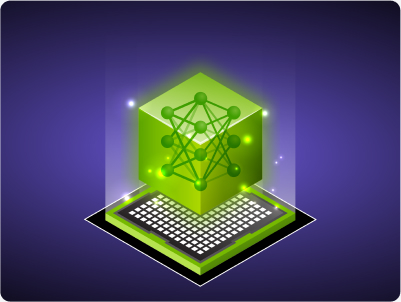The future of LLM in customer support has arrived! Technology for customer support teams has come a long way thanks to advancements in artificial intelligence (AI) and the rise of intelligent chatbots. Among the various AI tools available, Large Language Model (LLMs) have emerged as uniquely powerful assets for customer support teams. LLMs, like the popular GPT-4 model, have the ability to understand and generate human-like text, making them incredibly useful in assisting customers with their queries and concerns while removing robotic sounding language.
The integration of GPT for customer support has opened up new possibilities for businesses to enhance their support services. When used properly, LLM-enabled tooling will significantly improve response quality, increase productivity, and enable personalized interactions with customers. Let’s explore these three key benefits of LLMs in customer support.
LLM-enabled tooling will significantly improve response quality, increase productivity, and enable personalized interactions with customers
Enhance Response Quality
The most impactful advantage of using GPT for customer support is its ability to generate contextually appropriate and precise responses to customer inquiries. The GPT model has been trained on vast amounts of data including real customer interactions. This training has taught the model how to use tone, context, and basic emotions such as empathy. This serves as the base for three powerful benefits of AI in customer support.
Intelligent Responses
GPT tools for customer support can be further trained on specific knowledge about your business, products, and services. For example, it can ingest your knowledge base or product documentation. By doing so, the model can further understand the intent behind customer queries and provide relevant solutions. The generative AI can then create a brand new reply to known issues within support with all of the knowledge it has about your products. These generated responses will replace macros such that you are giving a human-sounding, unique message each time the issue comes up. The result is a better Customer Experience, less human effort, all while not sounding robotic or repetitive.
Align Tone and Grammar
LLM tools in customer support can read and edit an agent’s response to improve grammar and spelling and add in details that an agent may not know or has forgotten to add. This capability goes one step further than a normal grammar checker because it understands the context of your reply. In addition you can train your LLM on brand tone, or to include empathy or humor into your responses. Which means the edits are not just grammatical, but will align your tone, branding, and vocabulary across the entire team. Aligning the language creates a more cohesive and consistent experience no matter the tenure or skill level of the responding agent.
Continuous Learning
LLMs continuously learn from interactions, which enables them to improve over time. As the AI model engages with customers and receives feedback on its responses, it adapts and refines its understanding of various scenarios. It also increases scope in real time as you add new features or alter services. This learning process enhances the accuracy and effectiveness of the LLM, allowing it to handle more complex issues.
Overall, leveraging an AI for customer support will greatly enhance response quality. By generating contextually appropriate and accurate responses, reducing human errors and continuously learning from interactions, LLMs improve the customer support experience.
Boost Productivity
While one main theme is about replacing humans with AI, currently, most AI solutions are better at augmenting how people work today to boost productivity. These savings benefit a business and its customers. The business has more productive agents and the customers receive faster responses and self-service.
Assist Agents
LLMs in customer support can identify and recommend workflows in real time when a ticket is submitted. This means that agents require less training in advance and can rely on the tool to understand and suggest the next steps. Given it understands the type of ticket, the AI can automatically set fields within the ticket to improve your reporting accuracy and reduce the manual effort from agents.
Agents spending less time figuring out what workflow to use and filling in metadata, combined with generated responses significantly reduces ticket handle time, giving a significant boost to your team’s productivity.
Reduce Repeat Tasks
The biggest productivity gains are in handling repetitive tickets in a customer-centric way, while agents focus their attention on higher-touch, VIP, or unique support tickets. This creates a better customer experience for all, by getting immediate answers to the lower-value tickets and affording agents more time to deal with the cases that are most impactful to your business.
For example, This capability allows support agents to focus on more complex issues that require specific domain or technical expertise, while the LLM tool takes care of routine queries and tasks, such as providing order status updates or answering frequently asked questions. On top of that, an LLM can handle a large volume of customer inquiries simultaneously and is available 24/7 which ensures quick response times and reduces customer wait times for many of your tasks.
LLMs can identify and automate routine and repetitive tasks, freeing up agents to focus on more complex and high-value customer interactions. By taking care of mundane tasks like order tracking, FAQs, or basic troubleshooting, AI in customer support enables teams to allocate their time and energy where it matters most: building meaningful connections with customers and resolving intricate issues.
Personalize Interactions
Every customer is unique. Historically, chat bots and macros have tried to treat all responses as equal, leading to frustration and a lack of empathy. LLMs have helped to change that. Personalized interactions have become a cornerstone of exceptional customer support, because it helps customers feel like you know and understand them better. AIs can help you provide more personalized interactions.
Contextual Conversations
One of the benefits of AI for customer support is the ability to analyze customer data, previous interactions, and details like purchase history to provide tailored recommendations and suggestions. By understanding customer preferences and needs, LLMs can improve the delivery of highly personalized experiences, enhancing customer satisfaction and loyalty. This could mean recognizing things like order numbers, locations, tenure as a customer, or recent complaints.
When context is presented in real time to an agent, it allows them to have a more knowledgeable and personalized conversation with the customer, reducing the need to ask questions and simplifying ticket triage.
Understand Sentiment
LLMs can also assist with sentiment analysis, or predicting customer reactions based on previous interactions or other context. Anticipating how a customer might feel during an interaction can adjust how you interact with them, and recognize when to escalate or involve leadership or specialists earlier in the process. This creates a more personalized experience based on the customer, not based on internal process or policy.
The highest quality customer experiences are the ones that feel tailored to the customer and not a cookie-cutter, scripted approach. AI in customer support can guide your agents in real time to providing personalized experiences every time at scale.
LLMs in Customer Support
LLMs are transforming customer support by delivering enhanced response quality, boosting productivity, and enabling personalized interactions. With their ability to understand and generate human-like text, LLMs like GPT-4 have become invaluable assets for businesses looking to provide exceptional customer support. With AI technology, such as LLMs in customer support becoming more accessible and robust, they will continue to shape the future of customer support.



